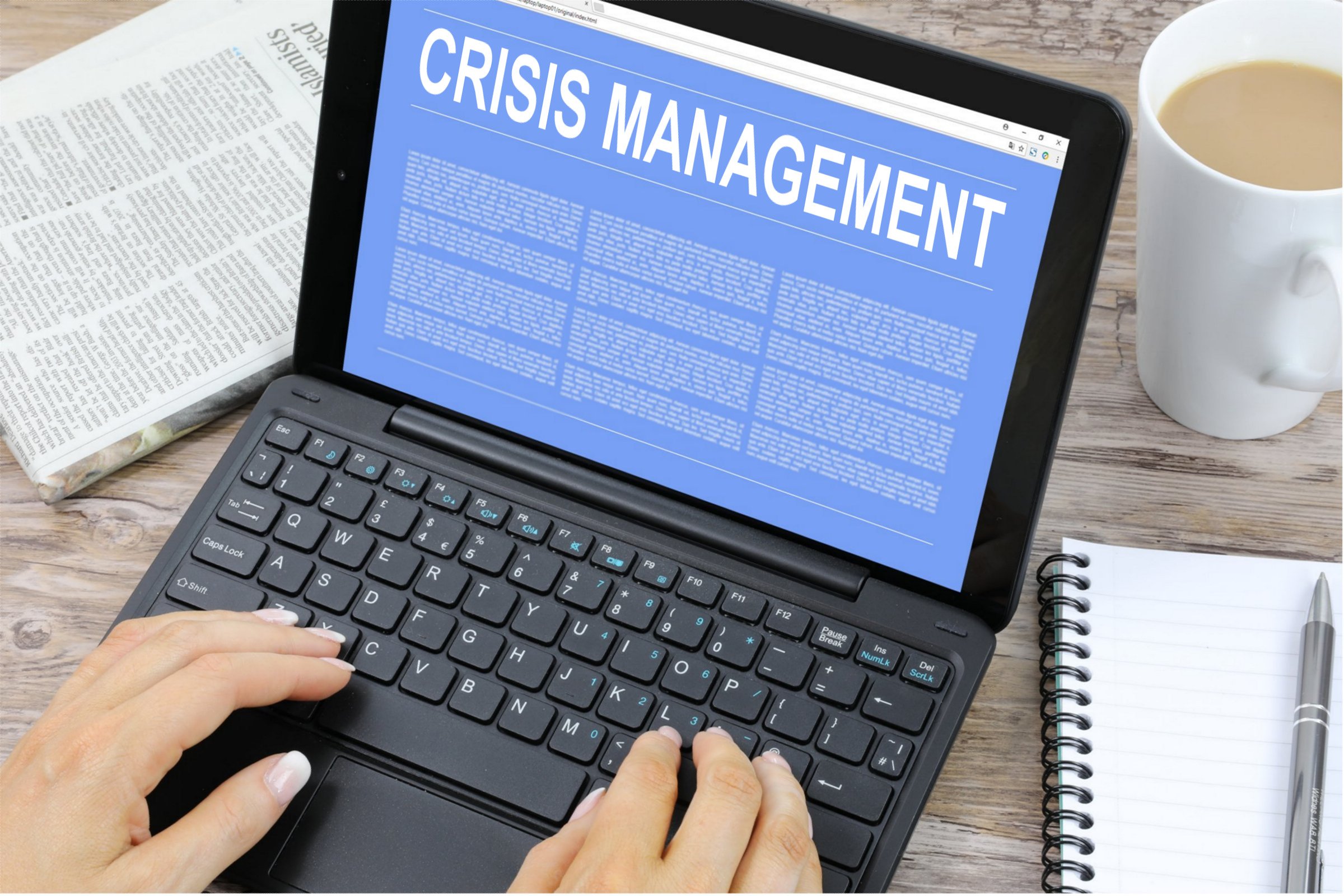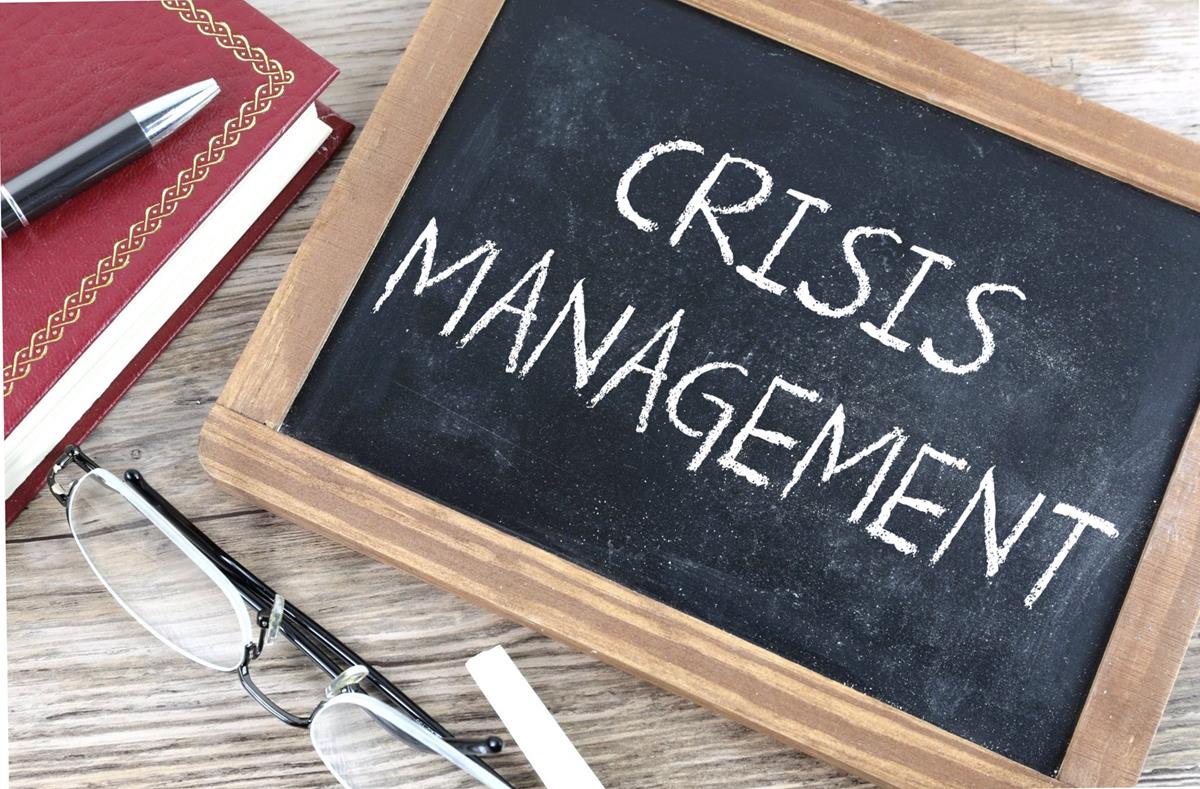Crisis Management 101: Preparing Officers for the Unexpected
- 1 Understanding Crisis Management
- 2 Importance Of Crisis Management
- 2.1 Maintaining Reputation and Trust:
- 2.2 Preserving Operations and Continuity:
- 2.3 Protecting Stakeholder Interests:
- 2.4 Mitigating Legal and Regulatory Risks:
- 2.5 Opportunity for Learning and Improvement:
- 3 Types of Crisis
- 3.1 Natural Crises:
- 3.2 Technological Crises:
- 3.3 Organizational Crises:
- 3.4 Reputational Crises:
- 3.5 Financial Crises:
- 3.6 Humanitarian Crises:
- 4 Conclusion
- 4.1 FAQs:
- 4.1.1 What is crisis management?
- 4.1.2 Why is crisis management critical?
- 4.1.3 What are some common types of crises?
- 4.1.4 How can organizations prepare for crises?
- 4.1.5 What is the role of communication in crisis management?
- 4.1.6 How should organizations respond to a crisis?
- 4.1.7 What are the consequences of ineffective crisis management?
- 4.1.8 How can organizations recover from a crisis?
- 4.1.9 What role do leaders play in crisis management?
- 4.1.10 How can organizations improve their crisis management capabilities?
In Short:
- Crisis management is essential for preserving reputation, ensuring operational continuity, and protecting stakeholder interests.
- Crises include natural, technological, organizational, reputational, financial, and humanitarian crises.
- Understanding and preparing for different crises is crucial for effective crisis management.
Crisis management is a crucial aspect of law enforcement. It involves preparing, responding to, and recovering from unexpected situations that threaten public safety. As an officer, you are expected to be well-trained and equipped to handle any crisis in the line of duty.
This guide will explore key strategies for preparing officers for unpredictable situations, including psychological readiness, training and resources, and communication.
Understanding Crisis Management
Before delving into the strategies for crisis management, it is essential to have a clear understanding of what exactly constitutes a crisis. A crisis can be defined as an event or situation that threatens individuals, organizations, or society. This can include natural disasters, terrorist attacks, civil unrest, and other unexpected events.
Crisis management involves the coordinated efforts of various agencies and personnel to mitigate a crisis’s impact. It requires swift action, effective communication, and adapting to changing circumstances.
Psychological Readiness
One of the most important aspects of crisis management is psychological readiness. This refers to officers’ mental and emotional state when faced with high-stress situations. It involves being mentally prepared for any potential crisis and remaining calm and focused under pressure.
Officers must undergo regular stress management training and receive support from mental health professionals to ensure psychological readiness. This can help them develop coping mechanisms and build resilience, allowing them to perform their duties effectively during a crisis.
Training and Resources
Another critical aspect of preparing officers for unexpected situations is providing them with the necessary training and resources. This includes firearms, other equipment, and specialized training for responding to specific crises.
For example, many law enforcement agencies have specialized units trained to handle hostage situations or active shooter scenarios. These officers undergo rigorous training in police shooting ranges to develop their marksmanship and tactical skills. Regular training exercises and simulations help officers stay updated on the latest tactics and techniques for responding to crises.
Aside from training, it is also essential for agencies to provide officers with the necessary resources and support during a crisis. This can include access to critical information, such as maps and floor plans of buildings in their jurisdiction, as well as specialized equipment for handling hazardous materials or providing medical assistance.
Communication
Effective communication is crucial in crisis management. During a crisis, there is often limited decision-making time, and clear and efficient communication can be the difference between life and death. Officers must be trained in various communication methods, including radio procedures, hand signals, and verbal cues.
In addition to internal communication within law enforcement agencies, officers must be able to effectively communicate with other emergency responders, such as firefighters or paramedics. This requires a shared understanding of terminology and protocols and the ability to coordinate efforts in a fast-paced and chaotic environment.
Importance Of Crisis Management
Maintaining Reputation and Trust:
One primary reason crisis management is essential is its role in maintaining an organization’s reputation and trust. In times of crisis, public perception can shift rapidly, and how an organization handles the situation can either strengthen or damage its reputation. Effective crisis management allows organizations to navigate challenging circumstances while preserving trust and credibility among stakeholders.
Preserving Operations and Continuity:
Another critical aspect of crisis management is preserving operations and ensuring business continuity. Crises can disrupt normal business activities, leading to financial losses and operational setbacks. By implementing crisis management strategies, organizations can minimize the impact of crises on their day-to-day operations and quickly resume normal business activities.
Protecting Stakeholder Interests:
Crisis management is also essential for protecting the interests of various stakeholders, including employees, customers, investors, and the community. During a crisis, stakeholders may be directly or indirectly affected, and it is the organization’s responsibility to address their concerns and mitigate any adverse impacts. Effective crisis management demonstrates a commitment to stakeholder welfare and fosters long-term relationships built on trust and transparency.
Mitigating Legal and Regulatory Risks:
In many cases, crises can lead to legal and regulatory challenges for organizations. Failure to address these challenges promptly and effectively can result in significant legal liabilities, fines, or sanctions. Crisis management is crucial in mitigating legal and regulatory risks by ensuring compliance with relevant laws and regulations, cooperating with authorities, and implementing appropriate remedial measures.
Opportunity for Learning and Improvement:
While crises are inherently disruptive and challenging, they also present opportunities for learning and improvement. Effective crisis management involves conducting thorough post-crisis evaluations to identify strengths, weaknesses, and areas for improvement. By learning from past crises, organizations can enhance their preparedness and resilience, ultimately strengthening their ability to manage future crises more effectively.
Types of Crisis
Natural Crises:
Natural crises are events triggered by natural phenomena such as earthquakes, hurricanes, floods, wildfires, and pandemics. They often result in widespread devastation, loss of life, and disruption of infrastructure. Organizations must have contingency plans to mitigate the impact of natural crises and ensure the safety and well-being of stakeholders.
Technological Crises:
Technological crises arise from technological, infrastructure, or systems failures or malfunctions. Examples include cybersecurity breaches, data breaches, power outages, and industrial accidents. Technological crises can have far-reaching consequences, including financial losses, reputational damage, and regulatory scrutiny. Organizations must invest in robust cybersecurity measures and contingency plans to mitigate the risks associated with technological crises.
Organizational Crises:
Organizational crises stem from internal issues such as management failures, ethical lapses, financial mismanagement, and product recalls. They often result from poor decision-making, lack of transparency, or ineffective organizational communication. Organizational crises can damage reputations, erode trust, and lead to legal and regulatory consequences. Effective crisis management involves addressing underlying issues, implementing corrective actions, and rebuilding stakeholder trust.
Reputational Crises:
Reputational crises occur when an organization’s actions, decisions, or behaviour negatively impact its public image and reputation. These crises can trigger scandals, controversies, customer complaints, or negative media coverage. Reputational crises can have long-lasting effects on an organization’s credibility, trustworthiness, and market value. Managing reputational crises requires proactive communication, transparency, and a commitment to addressing stakeholder concerns.
Financial Crises:
Financial crises arise from significant disruptions in financial markets, economic downturns, or financial mismanagement within an organization. Examples include stock market crashes, bankruptcy filings, and liquidity crises. Monetary crises can have widespread implications for businesses, investors, employees, and the broader economy. Effective crisis management involves implementing sound financial management practices, diversifying risk, and maintaining open communication with stakeholders.
Humanitarian Crises:
Humanitarian crises stem from widespread humanitarian emergencies such as conflicts, wars, refugee crises, and humanitarian disasters. These crises often result in mass displacement, loss of life, and humanitarian suffering. Organizations play a crucial role in responding to humanitarian crises by providing humanitarian aid, supporting relief efforts, and advocating for humanitarian assistance. Effective crisis management in humanitarian contexts requires collaboration with humanitarian organizations, governments, and local communities.
Conclusion
Crisis management is an essential aspect of law enforcement that requires officers to be mentally prepared, well-trained, and equipped with the necessary resources. By understanding the nature of crises, maintaining psychological readiness, providing proper training and resources, and promoting effective communication, officers can effectively respond to unexpected situations and ensure public safety.
As an officer, you must constantly prepare for the unexpected and be ready to act calmly and decisively during a crisis. Remember, proper preparation can save lives. So always stay alert, informed, and equipped for any situation. Stay safe out there!
FAQs:
What is crisis management?
Crisis management involves the process of preparing for, responding to, and recovering from crises to minimize their impact on an organization.
Why is crisis management critical?
Crisis management is important for maintaining reputation, preserving operations, and protecting stakeholder interests during times of crisis.
What are some common types of crises?
Common types of crises include natural disasters, technological failures, organizational mismanagement, reputational damage, financial crises, and humanitarian emergencies.
How can organizations prepare for crises?
Organizations can prepare for crises by developing contingency plans, conducting risk assessments, training employees, and establishing communication protocols.
What is the role of communication in crisis management?
Communication plays a crucial role in crisis management by keeping stakeholders informed, managing public perception, and maintaining transparency.
How should organizations respond to a crisis?
Organizations should respond to a crisis by activating their crisis management plan, coordinating response efforts, addressing stakeholder concerns, and mitigating the impact of the crisis.
What are the consequences of ineffective crisis management?
Ineffective crisis management can lead to reputational damage, financial losses, legal liabilities, and long-term damage to stakeholder relationships.
How can organizations recover from a crisis?
Organizations can recover from a crisis by conducting post-crisis evaluations, implementing corrective actions, rebuilding trust with stakeholders, and learning from the experience.
What role do leaders play in crisis management?
Leaders play a critical role in crisis management by providing direction, making decisions, and demonstrating resilience and accountability during times of crisis.
How can organizations improve their crisis management capabilities?
Organizations can improve their crisis management capabilities by investing in training, technology, and resources, establishing clear roles and responsibilities, and continuously evaluating and updating their crisis management plans.



















